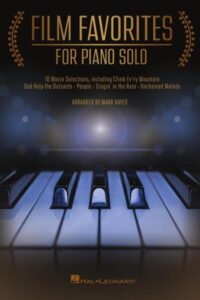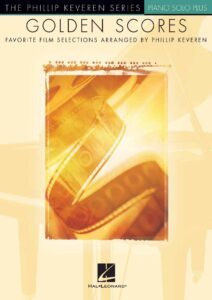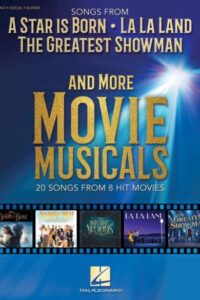Come join us now, and enjoy playing your beloved music and browse through great scores of every level and styles!
Can’t find the songbook you’re looking for? Please, email us at: sheetmusiclibrarypdf@gmail.com We’d like to help you!
Table of Contents
Rodney Bennett Four Weddings and A Funeral (Funeral Blues) Piano Solo, sheet music.

Best Sheet Music download from our Library.

Please, subscribe to our Sheet Music Library.
If you are already a subscriber, please, check our NEW SCORES’ page every month for new sheet music. THANK YOU!
Richard Rodney Bennett: A Composer of Remarkable Range
Sir Richard Rodney Bennett (1936–2012) was one of the most versatile and prolific British composers of the 20th century. His career effortlessly bridged the often-separate worlds of serious classical music, jazz, and film scoring.
- Classical Avant-Garde: He was a student of Pierre Boulez and was initially known for composing complex serialist music, including operas and symphonies.
- Jazz Virtuoso: In a parallel career, he was a renowned jazz pianist, singer, and arranger, performing and recording with giants like Benny Goodman and Cleo Laine.
- Acclaimed Film Composer: It is in film that he reached his widest audience. He was nominated for three Academy Awards for his scores for Far From the Madding Crowd (1967), Nicholas and Alexandra (1971), and Murder on the Orient Express (1974).
This unique blend of skills—formal compositional technique, a gift for melody, and a deep understanding of jazz and popular idioms—made him the perfect choice for a film that needed to be both sophisticated and warmly accessible.
Browse in the Library:
Or browse in the categories menus & download the Library Catalog PDF:
The Film Score for Four Weddings and a Funeral (1994)
Directed by Mike Newell and written by Richard Curtis, Four Weddings and a Funeral became a cultural phenomenon. While the film is famously packed with iconic pop songs like “Love Is All Around” by Wet Wet Wet, the original score by Richard Rodney Bennett is a masterclass in providing emotional depth, structural coherence, and subtle underscoring without ever getting in the way of the script or the songs.
The Role and Character of the Score
Bennett’s score does not attempt to compete with the pop songs. Instead, it serves a completely different, yet vital, function:
- The “Four Weddings” Theme: Bennett’s main thematic material is a beautiful, rising, and slightly wistful string theme that is first heard in the opening credits. It’s elegant, romantic, and quintessentially English, perfectly setting the tone for the film’s world of upper-middle-class social rituals. This theme returns and is developed throughout the film, most notably during key romantic moments between Charles (Hugh Grant) and Carrie (Andie MacDowell).
- Providing Emotional Ballast: The score’s most crucial role comes during the film’s dramatic pivot: the funeral. After the joyous, song-driven weddings, the death of Gareth (Simon Callow) brings a sudden and profound sadness. Bennett’s music here is solemn, respectful, and deeply moving. It provides the emotional gravity that the pop songs simply cannot, using a classical language of grief that feels entirely appropriate for the setting (a church) and the moment. It allows the audience to fully feel the weight of the loss alongside the characters.
- Subtle Underscoring: In many scenes, Bennett’s score works almost imperceptibly. It provides delicate punctuation for comic moments of awkwardness (often with a light, woodwind or harp flourish) and underscores moments of quiet contemplation or anxiety for Charles. It stitches the scenes together, ensuring the film’s emotional flow feels natural and uninterrupted.
- Complementing the Source Music: Bennett’s score is the perfect foil for the pop songs. The songs provide the public, celebratory energy of the weddings, while Bennett’s music provides the private, internal emotional landscape of the characters. They exist in a harmonious balance, each enhancing the effect of the other.
A Masterful Integration
What makes Bennett’s work on Four Weddings and a Funeral so brilliant is its self-awareness and humility. He understood that the film’s soundtrack was a mosaic:
- Pop Songs: For the public festivities and romantic highs.
- Classical Music (Diegetic): The pieces actually played at the weddings within the film’s world, like the “Arrival of the Queen of Sheba” during the chaotic first wedding or the choir singing “Amen” in the rain.
- Original Score: For the private, inner emotions—longing, regret, grief, and true love.
Bennett’s score is the glue that holds these elements together. It provides the emotional authenticity that makes the comedy sharper and the romance more believable. It proves that a great film score isn’t always about being memorable on its own; sometimes, it’s about serving the film so perfectly that its absence would be profoundly felt, even if the audience can’t quite hum the tune.
Richard Rodney Bennett’s contribution to Four Weddings and a Funeral is a testament to his genius as a composer who could move between musical worlds with ease. His score provides the film’s emotional backbone, offering depth, warmth, and a touch of class that perfectly complements the iconic pop soundtrack and remains an integral part of the film’s enduring appeal.
Search your favorite Sheet Music of Film, movie and musicals.

